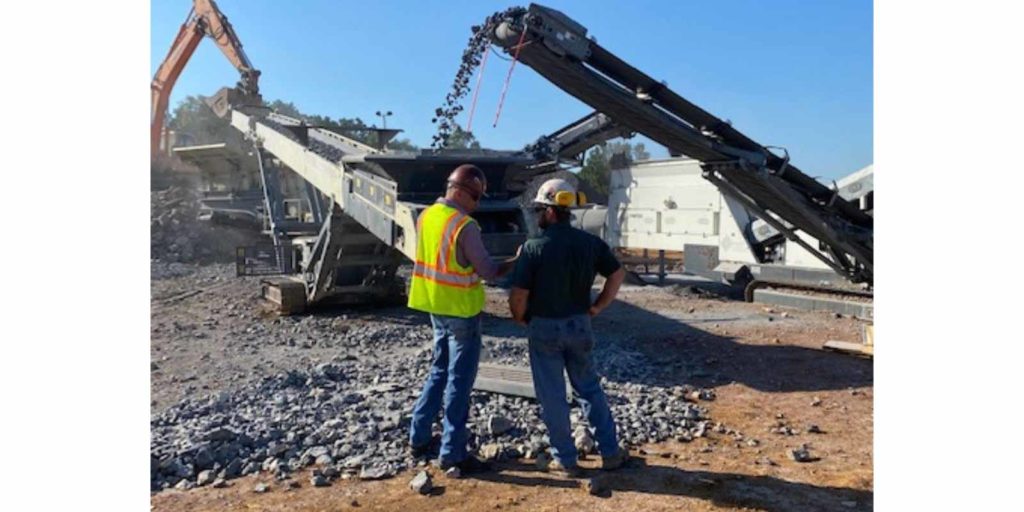Winter doesn’t mean what it used to.
A few decades ago, most crushing plants north of the Mason-Dixon Line would shut down when the weather got cold – usually around Thanksgiving. During the following winter months, plants would remain inactive, and it wasn’t until weather got warmer that anyone thought about getting a plant up and running.
That’s not the case anymore.
Today, very few crushing plants are shut down for any extended period of time – even those in Canada and extremely cold climates (although these typically require special insulation and equipment). Instead, many of them run all winter, whether snow or sun, enabling higher outputs and continued productivity year-round.
This can lead to success in meeting production quotas, but it can also lead to disaster if plants aren’t properly winterized. Machines don’t function in the cold the way they do in the heat and failing to adapt to that reality can cause costly damage. The good news is that there are simple steps you can take to ensure your plant is prepared for winter.
Here are four things you’ll need to consider.
1. Make sure dust suppression is working properly.
Dust and debris are some of the most dangerous elements of winter crushing. They’re a problem in any season, of course. But during the winter, dust can settle and freeze on machine components, leading to damage via the same process that causes potholes.
Dust suppression isn’t overly complex, but it is critical. Make sure that there is adequate drainage and that all of your lines are elevated so that they can run smoothly. Check to ensure that your water is clean and that there are no plugs in your system.
In terms of debris, take more care than ever to keep things clear. Mobile equipment, especially, can suffer from frozen debris that causes tracks to break.
In winter, more than ever, keeping your dust suppression working and your operations free of debris will keep your plant running.
2. Make sure your oils are at proper viscosity.
Another key consideration during the winter months is oil viscosity. Viscosity refers to how easily oil flows at different temperatures; at higher temperatures, oils tend to have a low viscosity and flow more easily, while at lower temperatures, they have a high viscosity, becoming thicker and flowing with more difficulty.
Oil that doesn’t flow easily won’t be able to lubricate or cool your crushing systems in the ways it’s supposed to. To ensure your oils are at the correct viscosity during the cold winter months, check your operating manuals and make sure that you are using the correct types. Often, this will mean replacing “summer oils” with lower-viscosity “winter oils” to maintain the same degree of flow.
Don’t simply leave your oils from the summer to perform in the winter. That’s a costly mistake.
3. Make sure your heating systems are working.
On a related note, heating systems play a key role in maintaining oil viscosity. Make sure that your heaters are set to the correct levels, and make sure that your temperature gauges are accurate. A worst-case scenario is that your heaters don’t recognize when the right temperature has been reached and keep heating until your oils catch fire.
A better scenario is that you check your heating system and ensure that it’s playing its part to keep your crushing plant running.
4. Turn on “winter mode” when you have the option.
Finally, if your crushing equipment has a winter mode, you should turn it on during the winter. If that sounds like common sense, it’s because it is. But it’s still an easy thing to forget.
Equipment that comes with a winter mode most often works by periodically allowing oils to be pumped through the crusher. This keeps the machine at a good temperature and makes startup easier and quicker. It’s a very useful feature.
If your equipment doesn’t come with winter mode, you may be able to add that functionality fairly efficiently. If you have line power set up, it may be that nothing more than controls is needed. If you don’t have line power, though, and you need to add a generator, you’re probably looking at an expensive update.
Regardless, we recommend consulting with Mellott so that you have the information you need to make an informed decision.
Ready to keep crushing this winter?
In today’s age of year round rock crushing, operating in the winter is more common than ever – but, if done haphazardly and without proper preparation, it has the capability to cause your plant huge damages.
Pay attention to the four items above, and you’ll be in a good position to keep your plant running through the cold months.
If you’re looking for more information on how to avoid winter crushing hazards – or for any assistance in optimizing your crushing plant – get in touch with us. From crushing consulting to equipment service and replacement, we can help you optimize your crushing equipment and procedures for increased production.
Let Mellott help your crushing plant thrive during the winter months and for the rest of the year.

